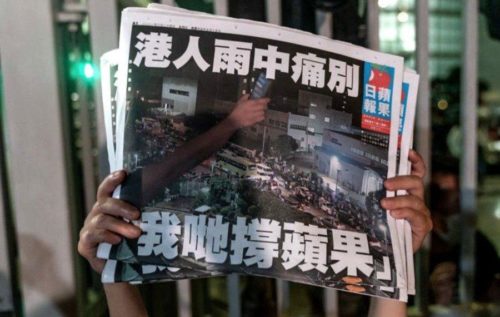New ECFR report | Rome’s moment: Draghi, multilateralism, and Italy’s new strategy
- Under Prime Minister Mario Draghi, Italy is focused on dealing with the pandemic while promoting Italian and European interests as president of the G20 and co-chair of COP26.
- The Draghi government is shifting the priorities of Italian foreign policy towards the European Union, the transatlantic relationship, and multilateralism more broadly.
- Draghi’s Italy will work primarily alongside other EU member states – particularly on health security, climate, and economic and infrastructure development – but could also act as a bridge between competing great powers.
- In doing so, Italy has an opportunity to position itself closer to the Franco-German engine and to help construct a multilateral system in which the EU and the US are equal partners.
In a new report – Rome’s moment: Draghi, multilateralism, and Italy’s new strategy – by the European Council on Foreign Relations, authors Teresa Coratella and Arturo Varvelli argue that the Global Health Summit, the G20, and COP26 can help Italy conduct a more proactive foreign policy that emphasises both the EU and multilateralism. This could help Italy reach its potential as an engaged and energetic player in Europe.
While the pandemic may have destabilised Italian politics, the resulting change of government has created an opportunity for the country to develop its international role in this way. Under Draghi’s leadership, Italy is focused on redefining Italian interests within the European framework; promoting European interests; and strengthening its commitment to multilateralism as co-chair of COP26 (alongside the United Kingdom) and – for the first time – president of the G20. Still, Draghi government’s credibility will rest upon its ability to promote European values in line with its concept of the Italian national interest.
As Teresa Coratella emphasises: “The Global Health Summit on 21 May could help Italy reinforce the role of health security in multilateral cooperation and coordination. The country can use its G20 presidency, alongside its G7 membership, as a megaphone through which to promote a multilateral health security strategy. As on health security, Italy needs to simultaneously implement its climate strategy on the national, European, and global levels and Italy use its G20 and COP26 roles to raise its profile on environmental issues, which would help it promote the goals and strategies of the European Green Deal. All these efforts should help Italy lay the foundations of a Europe capable of tackling the systemic challenge of climate change.”
“Draghi should demonstrate that international cooperation means not sacrificing the national interest but placing it within a bigger framework of collective interests – and that doing so has a tangibly positive impact on Italians’ lives and the economy. Fortunately, his government seems to be in a strong position to restore Italian support for multilateralism, especially in Europe,” highlights Arturo Varvelli.
About the authors:
Teresa Coratella is programme manager at the Rome office of the European Council on Foreign Relations. She focuses on Italian foreign policy trends and Italy’s role in Europe, regularly contributing to the View from Rome series. A dual Italian and Polish citizen, she joined ECFR in 2011 and holds an MA in European interdisciplinary studies from the College of Europe, with a focus on the EU as a regional actor.
Arturo Varvelli is head of the Rome office and a senior policy fellow at the European Council on Foreign Relations. His research interests include geopolitics and international affairs; the Middle East and North Africa; EU and Italian relations with the region; and transnational terrorist movements. Previously, Varvelli worked as the co-head of the MENA centre and head of the terrorism programme at the Italian Institute for International Political Studies, where he organised the ‘Rome MED – Mediterranean Dialogues’ alongside the Italian Ministry of Foreign Affairs. Varvelli holds a PhD in international history from the University of Milan, and a post-PhD degree from the CRT Foundation, based in Turin.
The European Council on Foreign Relations (ECFR) is a pan-European think-tank that aims to conduct cutting-edge independent research in pursuit of a coherent, effective, and values-based European foreign policy. With a network of offices in seven European capitals, over 60 staff from more than 25 different countries and a team of associated researchers in the EU 27 member states, ECFR is uniquely placed to provide pan-European perspectives on the biggest strategic challenges and choices confronting Europeans today. ECFR is an independent charity and funded from a variety of sources. For more details, please visit: www.ecfr.eu.
The European Council on Foreign Relations does not take collective positions. This report, like all publications of the European Council on Foreign Relations, represents only the views of its authors.
European Council on Foreign Relations (ECFR)
Unter den Linden 17
10117 Berlin
Telefon: +49 (30) 32505100
http://www.ecfr.eu
Telefon: +49 (30) 3250510-27
E-Mail: communications@ecfr.eu
![]()



